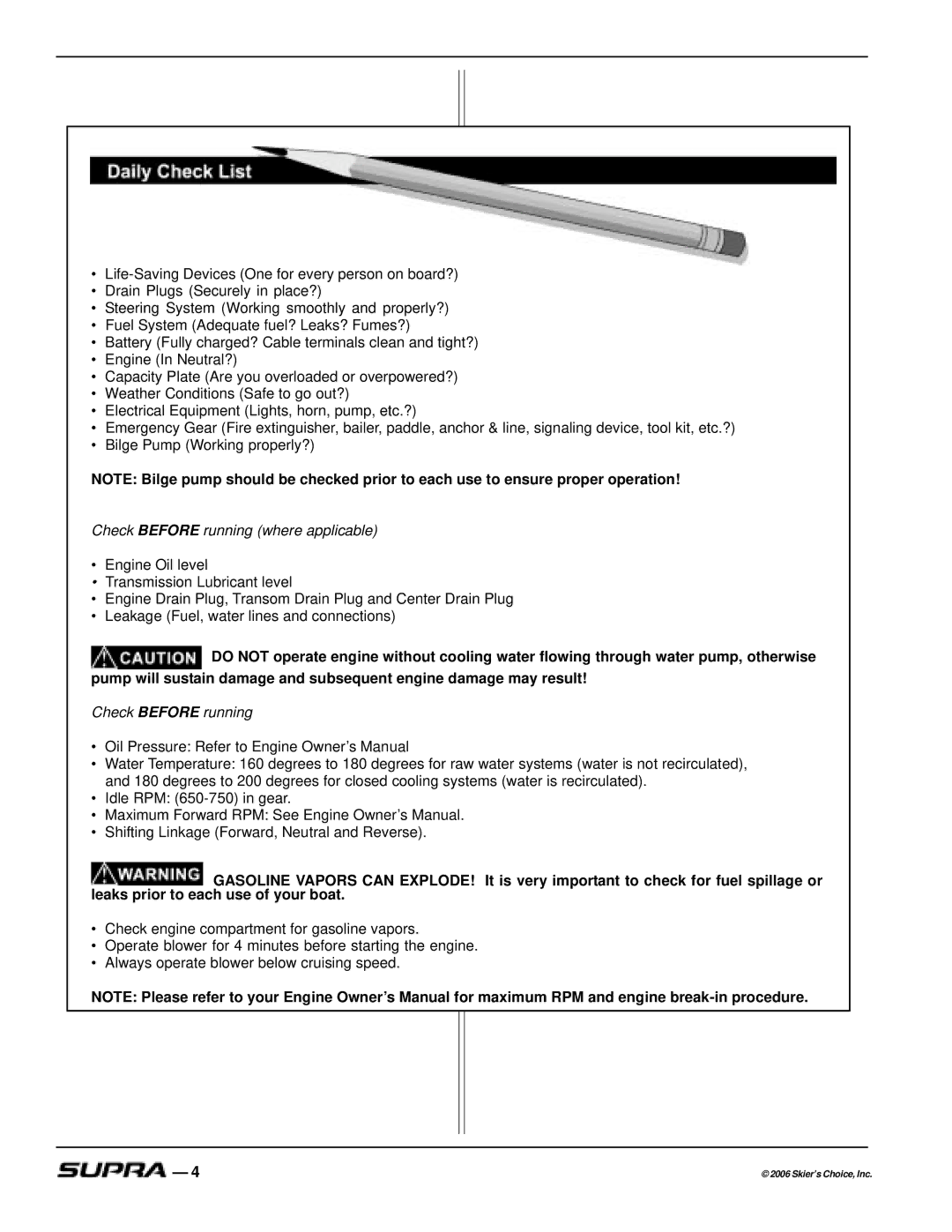
•Drain Plugs (Securely in place?)
•
•Drain Plugs (Securely in place?)
•Steering System (Working smoothly and properly?)
•Fuel System (Adequate fuel? Leaks? Fumes?)
•Battery (Fully charged? Cable terminals clean and tight?)
•Engine (In Neutral?)
•Capacity Plate (Are you overloaded or overpowered?)
•Weather Conditions (Safe to go out?)
•Electrical Equipment (Lights, horn, pump, etc.?)
•Emergency Gear (Fire extinguisher, bailer, paddle, anchor & line, signaling device, tool kit, etc.?)
•Bilge Pump (Working properly?)
NOTE: Bilge pump should be checked prior to each use to ensure proper operation!
Check BEFORE running (where applicable)
•Engine Oil level
•Transmission Lubricant level
•Engine Drain Plug, Transom Drain Plug and Center Drain Plug
•Leakage (Fuel, water lines and connections)
![]() DO NOT operate engine without cooling water flowing through water pump, otherwise pump will sustain damage and subsequent engine damage may result!
DO NOT operate engine without cooling water flowing through water pump, otherwise pump will sustain damage and subsequent engine damage may result!
Check BEFORE running
•Oil Pressure: Refer to Engine Owner’s Manual
•Water Temperature: 160 degrees to 180 degrees for raw water systems (water is not recirculated), and 180 degrees to 200 degrees for closed cooling systems (water is recirculated).
•Idle RPM:
•Maximum Forward RPM: See Engine Owner’s Manual.
•Shifting Linkage (Forward, Neutral and Reverse).
![]() GASOLINE VAPORS CAN EXPLODE! It is very important to check for fuel spillage or leaks prior to each use of your boat.
GASOLINE VAPORS CAN EXPLODE! It is very important to check for fuel spillage or leaks prior to each use of your boat.
•Check engine compartment for gasoline vapors.
•Operate blower for 4 minutes before starting the engine.
•Always operate blower below cruising speed.
NOTE: Please refer to your Engine Owner’s Manual for maximum RPM and engine
— 4 | © 2006 Skier’s Choice, Inc. |
